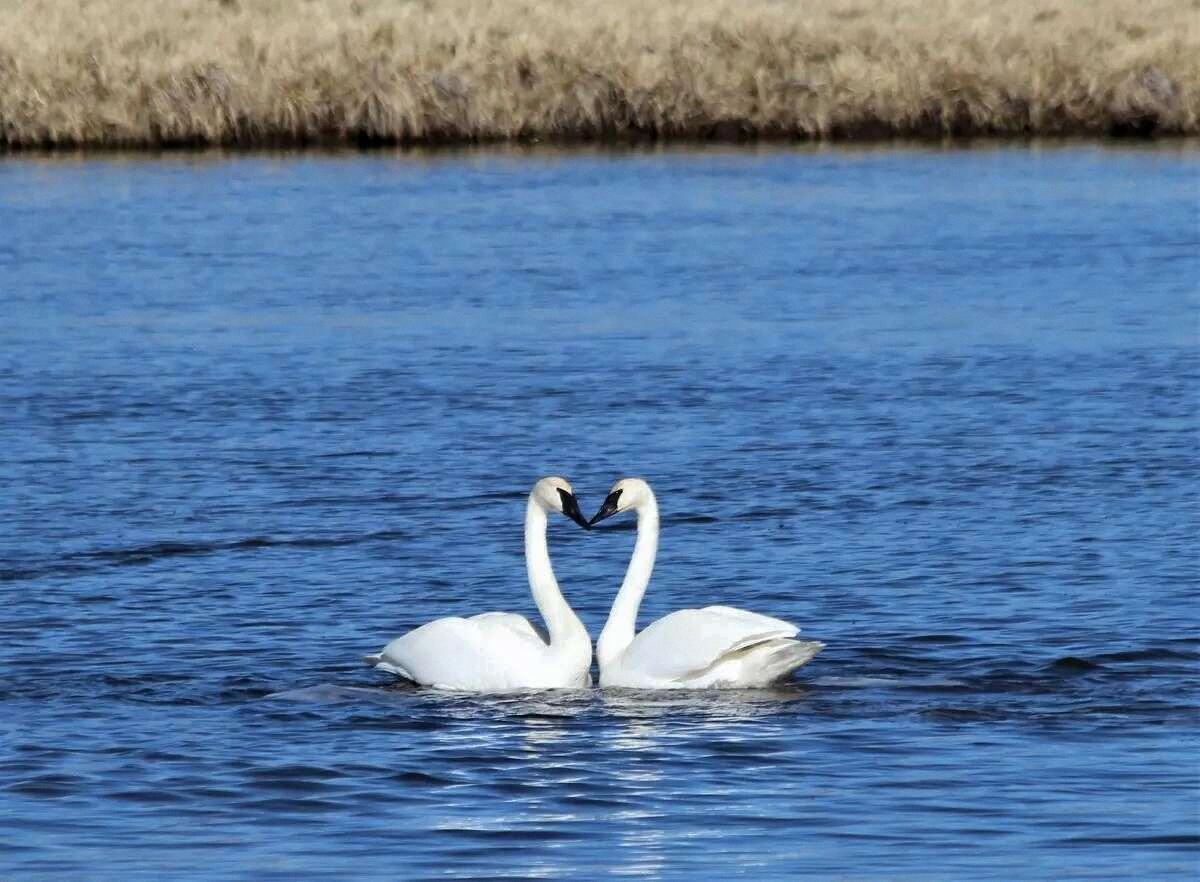Swans are known for their beauty, grace, and loyalty. These majestic birds have long been admired for their monogamous relationships, which can last for many years and even for life.
Swans form pair bonds that are incredibly strong, and they are known to be fiercely loyal to their mates. Once a swan has found a mate, the couple will stay together for many years, oten for the rest of their lives.
The pair bond between swans is so strong that if one mate dies, the other will often remain alone for a long time, mourning the loss of their partner. In some cases, the surviving mate may eventually find a new partner, but in other cases, they may remain alone or rejoin a flock.
The reason why swans form such strong bonds with their mates is not entirely clear, but it is believed to have to do with the need to protect their offspring. Swans are highly protective parents, and they work together to raise and protect their young.
Swans are also known for their elaborate courtship rituals, which involve a variety of displays and vocalizations. These rituals help to strengthen the pair bond between the two birds, and they are often repeated year after year.
In addition to their strong pair bonds, swans are also known for their beauty and grace. These elegant birds are found in many parts of the world, and they are often a favorite subject of artists and photographers.
Swans are remarkable birds that are admired for their loyalty, beauty, and grace. Their monogamous relationships are a testament to the power of love and commitment, and they serve as an inspiration to us all.
Why Do Swans Mate For Life?
Swans mate for life because it provides them with a number of benefits. One of the main advantages is that it saves them the time and energy that would otherwise be spent searching for a new mate each year. This is particulary important after migration when the birds need to conserve their energy for breeding and raising their young. In addition to this, a long-term pair bond enables the couple to establish a strong bond and work together to build and maintain a nest, incubate eggs and raise their offspring. Furthermore, swans are highly territorial birds, and a long-term pair bond helps the couple to defend their territory and protect their young from predators. mating for life is a successful strategy for swans, allowing them to focus on breeding and raising their young with a strong and committed partner.

What Happens If A Swan Loses Its Mate?
When a swan loses its mate, it goes through a grieving process similar to humans. It may stay where it is on its own, fly off and find a new stretch of water to live on, or re-join a flock. The decision of what to do largely depends on the individual swan’s personality and circumstances. Some swans may stay aloe for a while, while others may quickly find a new mate and form a new pair bond. It is important to note that swans are monogamous birds, meaning they typically mate for life, and losing a mate can have a significant impact on their behavior. swans are social birds that thrive in the company of others, and losing a mate can be a challenging experience for them.
Do Swans Stay Together Forever?
Swans are known to form monogamous pair bonds that can last for many years, and in some cases, thse bonds can last for life. Swans are loyal to their mates, and their commitment to each other is so strong that the image of two swans swimming with their necks entwined in the shape of a heart has become a widely recognized symbol of love. Swans are also known for their elaborate courtship displays, which involve synchronized swimming, head bobbing, and vocalizations. Once a pair bond is established, the male and female swan work together to build a nest and raise their young. swans are known for their strong pair bonds and their commitment to their mates, which can endure for many years and even for life.
What Animal Has Only One Mate For Life?
The animal that has only one mate for life is the gray wolf. Wolf packs are known for their strict social hierarchy, which is led by the alpha male and his mate. The alpha male and female wolves stay togethr for life, forming a strong bond and working together to lead and protect their pack. This behavior is unique to the gray wolf and is not commonly observed in other animal species. It is also worth noting that wolf packs can consist of several generations of wolves, with offspring staying within the pack and taking on roles of their own as they grow and mature. the gray wolf’s commitment to a single mate for life is an admirable trait that speaks to the species’ loyalty and dedication to their pack and family unit.
Conclusion
Swans are known for their incredible loyalty to their mates. They form monogamous pair bonds that can last for many years, and in some cases, even for life. This commitment to a partner is not only impressive but also beneficial for the swans as it saves them energy that would otherwise be spent searching for a new mate each year. When a mate is lost, the surviving swan will go through a grieving process that is similar to what humans experience. However, it is heartening to know that they may eventually find a new mate or re-join a flock. The image of two swans swimming with their necks entwined in the shape of a heart has bcome a universal symbol of love and loyalty, and rightfully so. Swans’ devotion to their mates serves as a reminder of the beauty and power of love in the animal kingdom.
